EPA Signals Andrew Wheeler Could Stay In Place Until 2020 Without Senate Confirmation

When Andrew Wheeler hit his 100th day at the top of the Environmental Protection Agency this week, the press office put out what seemed to be two humdrum updates on the trip “Administrator Wheeler” took to Louisiana.
But the press releases’ subject lines contained a small, almost unnoticeable tweak with significant implications: He still hasn’t been nominated or confirmed to serve as the agency’s permanent chief. He’s not the EPA administrator; he’s the acting EPA administrator. The agency had been noting the distinction ― until this week.
The change could easily be chalked up to a mistake or an attempt to condense a clunky title in a tight space. But former EPA officials say it raises questions about the administration’s plans to keep Wheeler in place indefinitely, making him the longest-serving acting administrator in the agency’s nearly 48-year history.
With 101 days under his belt, Wheeler ranks fifth in tenure out of the agency’s 17 acting administrators since 1970. By Dec. 9, he’ll surpass Bob Perciasepe’s roughly five-month stint as acting administrator in 2013.
After a series of bruising confirmation processes for President Donald Trump’s nominees, critics say the White House could exploit the ambiguous rules governing the acting agency head to keep Wheeler as the EPA’s boss, overseeing a dramatic deregulatory effort for the remaining 748 days of the president’s term ― nearly six times the current record for an acting administrator.
“To keep an Acting Administrator indefinitely is of course at variance with the past practice for Administrators,” Stan Meiburg, a former acting deputy EPA administrator who spent 39 years at the agency, wrote in an email. “My expectation has been that if they are going to nominate Andrew they would wait until after the midterms, to avoid what would have been a (another!) contentious hearing and in hopes of a larger Senate majority.”
The EPA declined to comment on the record, but after an inquiry, it sent a press release Wednesday morning with the title “acting administrator” in the subject line.
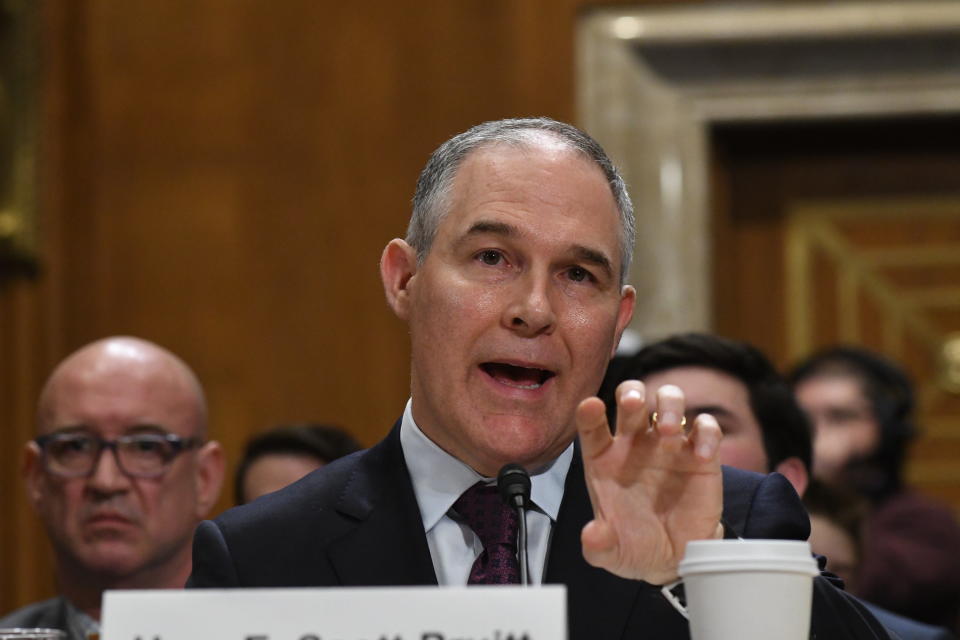
The possibility that Wheeler would be the long-term leader of the agency most politicized under this administration was clear during his confirmation process to become deputy administrator. After his nomination last October, Wheeler, until then a prominent coal and mining lobbyist, sat quietly in procedural limbo. The Senate’s powerful Environment and Public Works Committee voted narrowly along party lines in February to advance his nomination despite conflict-of-interest concerns. In April, just before the final confirmation tally, Democrats made a half-hearted attempt to delay the vote in light of then-Administrator Scott Pruitt’s intensifying cascade of personal and ethical scandals.
“It’s like a shadow confirmation vote for the next administrator of the EPA,” Sen. Ed Markey (D-Mass.) said on the Senate floor before the April vote. “It’s an attempt to slip by at the end of the week ... the nomination and confirmation of a man who stands for just the opposite of the credentials of a candidate to run the EPA.”
Later that day, the Senate voted 53-45 to confirm Wheeler as the agency’s No. 2, a position he held for less than three months before Pruitt resigned in disgrace amid more than a dozen federal investigations and snowballing accusations.
A week after Wheeler took charge, Jeff Holmstead, a deputy EPA administrator under President George W. Bush who has close ties to the Trump administration, hinted that the plan was to keep the acting administrator in place for years to come.
“This is the role Andy has always looked forward to having,” Holmstead told The Washington Examiner. “I think he is going to be able to get an awful lot done in the next few years.”
Since taking over, Wheeler has been a steadying force at the agency. Unlike Pruitt, who seemed to delight in antagonizing the press and instigating controversies, Wheeler has invited media from across the political spectrum to cover EPA events and responded quickly this month when inflammatory activity on his personal social media accounts surfaced.
Yet ideologically, Wheeler is in line with his predecessor and has forged ahead with Pruitt’s most criticized policies. In August, Wheeler led an effort to roll back fuel economy rules, clearing the way to increase vehicle carbon dioxide emissions ― the nation’s top source of carbon pollution ― 600 million metric tons by 2030. Weeks later, he proposed a rule to gut a long-stalled Obama-era power plant rule, allowing for pollution that, by the agency’s own calculations, will cause an additional 1,400 premature deaths per year. Last week Wheeler disbanded two panels of experts charged with advising the EPA on limiting harmful emissions of soot and smog-forming gases.
“One can only wonder if the White House has given him its blessing after 100 days on the job and it intends that he will remain in the job permanently,” said Mike Mikulka, the president of the American Federation of Government Employees Local 704, a regional union for EPA workers. “If that is the case, our health and the environment will continue to suffer.”
The legal foundation for Wheeler’s indefinite tenure as acting administrator rests on the vague rules concerning the EPA’s leadership. Under the Federal Vacancies Reform Act of 1998, the “person serving as an acting officer … may serve in the office” for “no longer than 210 days beginning on the date the vacancy occurs.” But the EPA’s reorganization plan allows the deputy administrator to “act as Administrator during the absence or disability of the Administrator or in the event of a vacancy in the office of Administrator.”
No acting administrator has remained in the role for longer than 153 days, leaving it unclear which rule overrides the other, Perciasepe said.
“He can’t be anything but acting without nomination and then confirmation,” he said by email. “While he is an acting one, he is Administrator.”
Sen. John Barrasso (R-Wyo.), the chairman of the Senate Environment and Public Works Committee, in August issued a statement urging Trump to nominate Wheeler as administrator.
“Once a nomination is made by the President, the committee will consider that nomination,” Mike Danylak, a spokesman for the committee’s Republican leadership, said in an email.
Sen. James Inhofe (R-Okla.), a veteran on the committee and Pruitt’s one-time political patron, said he was “thrilled with the work that Acting Administrator Wheeler is doing and would encourage the president to nominate him as soon as practicable.”
The committee’s Democratic minority did not respond to a request for comment on how the EPA should proceed after Jan. 30, 2019, the date 210 days after Pruitt’s resignation.
The White House also did not respond to questions about its plan for Wheeler.
But Christine Todd Whitman, an EPA administrator under Bush, said keeping Wheeler as acting chief until 2020 would harm public trust in a scientific agency already tainted by bitter partisan disagreements over its role.
“The politics in Washington is so polarized now that few nominations are moving at all,” she said by email. “It’s a situation that does not serve the public well as the actions of anyone in an ‘acting’ capacity can be more easily be called into question and it is unsettling for an agency.”
This story was updated with information about Barrasso’s statement and a comment from Inhofe.
Related Content
Senate Confirms Controversial Former Coal Lobbyist As Next-In-Line To Lead EPA
EPA Chief Andrew Wheeler Engaged With Racist, Conspiratorial Posts On Social Media
Democratic Senator Tells EPA's Andrew Wheeler To Resign Over Racist, Conspiratorial Memes
Also on HuffPost
Love HuffPost? Become a founding member of HuffPost Plus today.
A Bumpier Ride?

Not A Drop To Drink
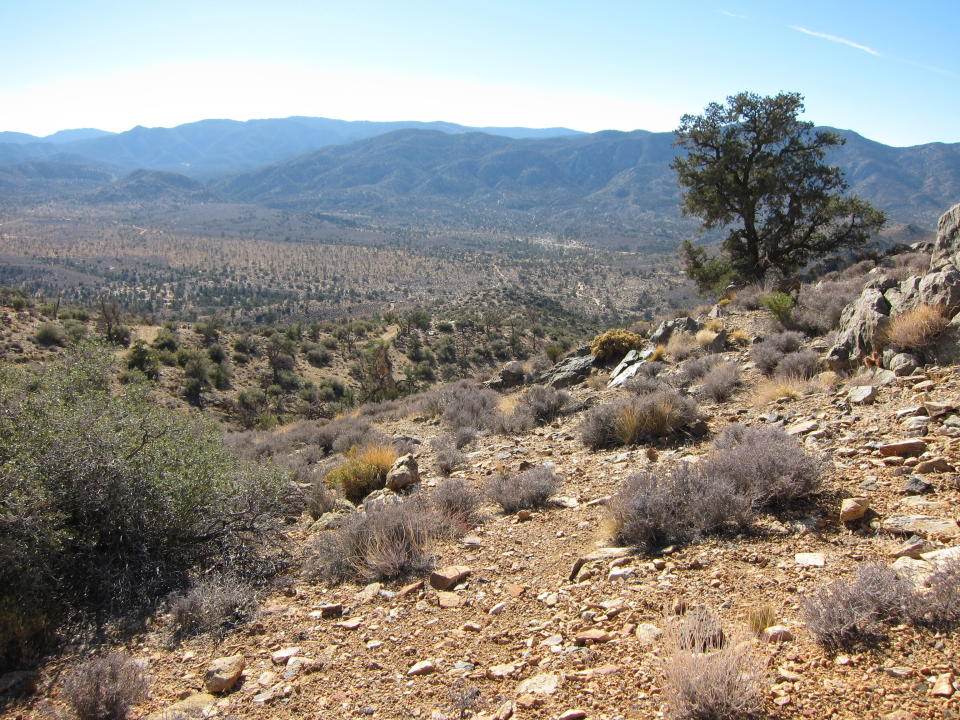
A Mighty Wind
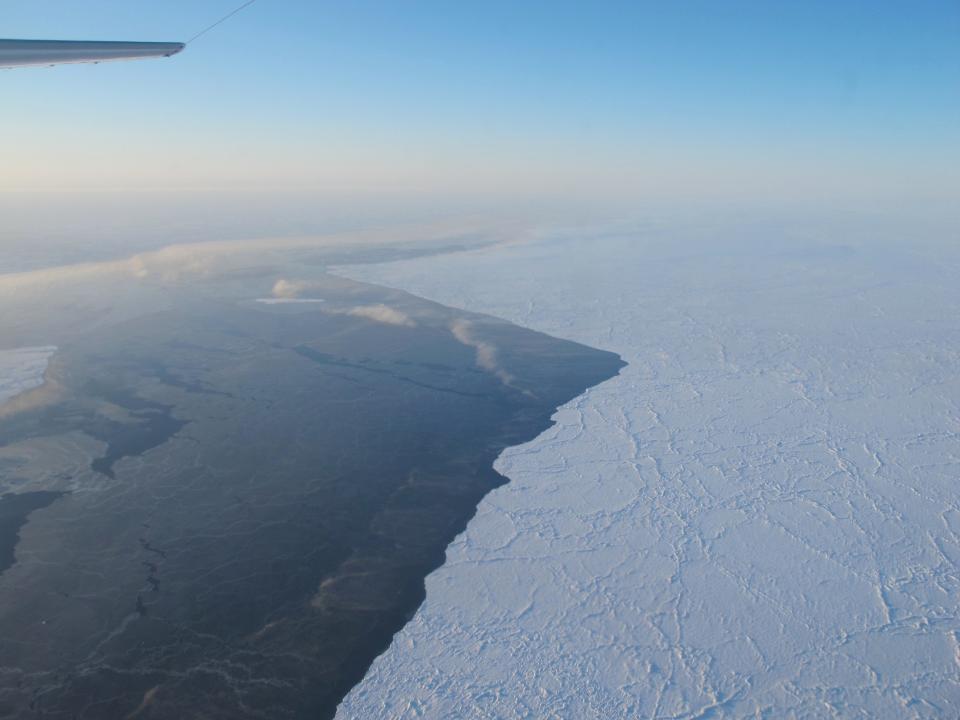
Worsening Allergies

Wine To Go?

Home Sweet Home
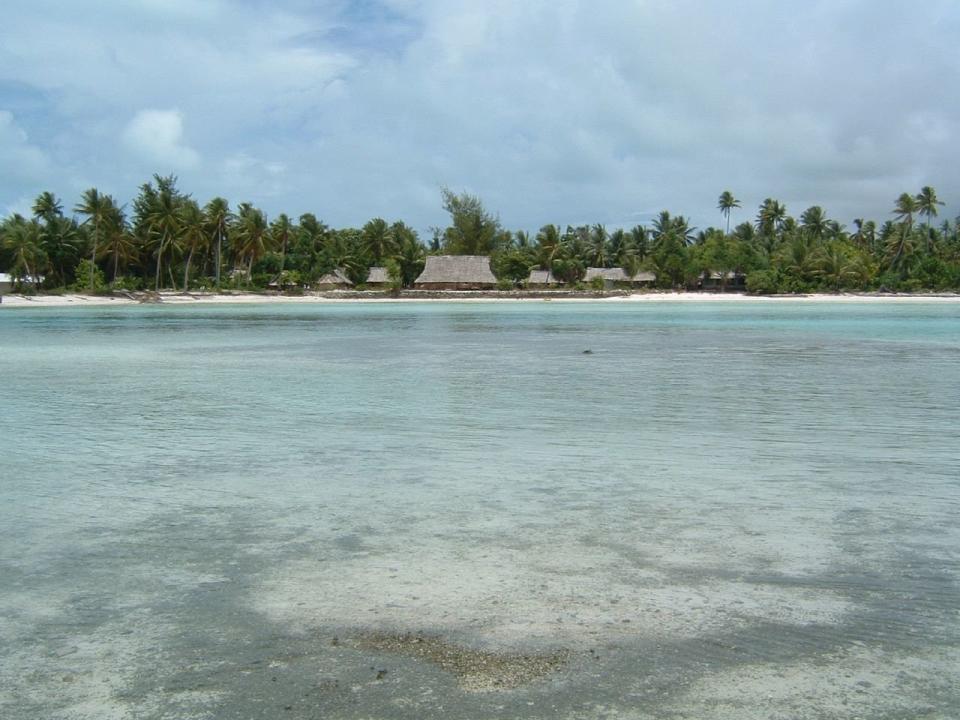
Trouble On The Ice

A Damper On Your Raw Bar?

The Color-Changing Bears

Less Time On The Chair Lift
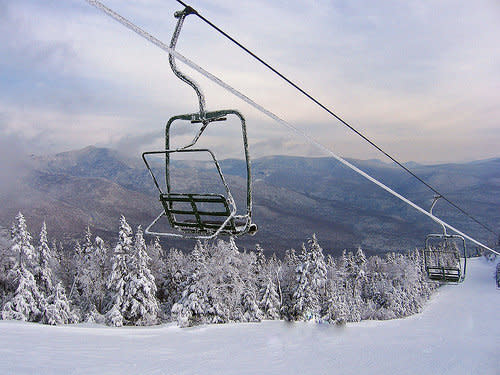
A Cold Cup Of Coffee

This article originally appeared on HuffPost.


